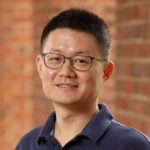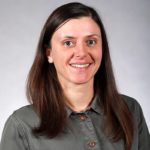Whitney Lohmeyer
Whitney Lohmeyer is an Assistant Professor of Engineering at Olin College and a Research Affiliate at MIT in Aeronautics and Astronautics. She leads the Olin Satellite + Spectrum Technology & Policy (OSSTP) Group, and manages and contributes to the field of satellite communications systems. She also works closely with industry to advise on end-to-end system design, antenna systems, RF power amplification, radiation tolerance and spectrum strategy. Whitney is passionate about enabling affordable Internet access in order to generate economic growth and improve healthcare and education. Whitney was the first engineer hired at OneWeb, a company launching hundreds of low earth orbit communications satellites to provide global broadband and bridge the digital divide. While at OneWeb, she held a variety of roles both technical and policy-focused. As a Systems Engineer, she designed the RF Link Budget, and worked on the end-to-end communications system design, focusing on the LTE waveform and the user terminal antenna. In addition, she actively contributed to policy reform at the United States Federal Communications Commission (FCC) and United Nations (UN) International Telecommunications Union (ITU), and represented OneWeb on the U.S. Delegation to the 2015 World Radio Conference, the culmination of a three-year regulatory review cycle. Prior to joining the OneWeb team, she worked as a hardware engineer at Google, and spent time in technical roles at Inmarsat and NASA. Whitney received her Ph.D. in Aeronautics and Astronautics from MIT in 2015, and her M.S. in Aeronautics and Astronautics from MIT in 2013, both funded by a National Science Foundation (NSF) Graduate Research Fellowship. She earned her B.S. in Aerospace Engineering from NC State University in 2011, as the only female in her class of approximately ninety students, and now currently serves on the board of North Carolina State University’s Mechanical and Aerospace Engineering (MAE) Department. She has been invited to speak at a variety of events including NC State’s 2018 MAE Commencement Ceremony, the UN Women’s Gender Equality and Mainstreaming (GEM) The Internet of Women: Challenge or Opportunity? and the UN’s and ITU’s Women’s Leadership Workshop on Empowering Women in Radiocommunications Negotiations.
INTERESTS
- Satellite Communications
- Wireless Communications
- Satellite Systems
- International Spectrum Policy
- Principles of Wireless Communications









